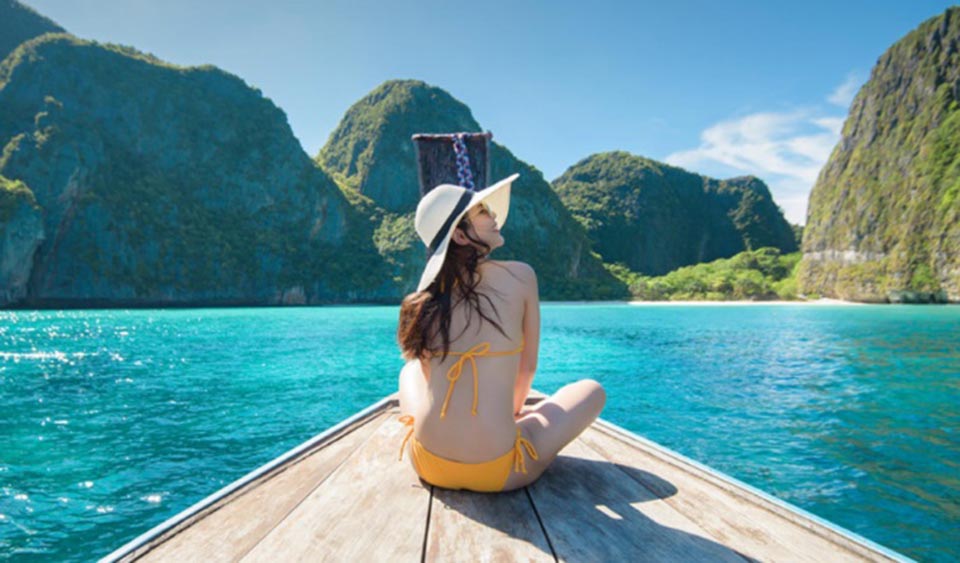
Thailand has announced laws on coral-damaging sunscreen in national parks. Violators could face a fine of up to 100,000 baht.
The Royal Gazette published an announcement made by the Department of National Parks, Wildlife and Plant Conservation on banning sunscreens containing toxic compounds that contribute to the deterioration of the ecosystem and coral reefs, coral lavae, obstruction of reproduction of the reefs and cause coral bleaching in the sea, according to academic findings.
The banned sunscreens consist of those containing Oxybenzone (Benzophenone-3, BP-3), Octinoxate (Ethylhexyl methoxycinnarate), 4-Methylbenzylid Camphor (4MBC) and Butylparaben.
The law was enacted on 6th August, 2021.
There are in total 7 global destinations which impose such bans, according to Conde Nast Traveller magazine, including the State of Hawaii of the US. It has banned the over-the-counter sale of sunscreens containing oxybenzone and octinoxate, to encourage visitors to use the more mineral sunscreens, since the begining of 2021.
U.S. Virgin Islands also outlawed the sale and use of products containing oxybenzone, octoerylene, and octinoxate in March 2020.
Aruba island of the Caribbean, has also done so, but only limits the import, sale, and production of sunscreen containing oxybenzone. Another Caribbean destination, the island of Bonaire, has also restricted the sale of reef-damaging sunscreen products since January 2021.
Tourist hotspots in Mexico, like Cancun, Playa del Carmen, or Cozumel permit only reef-friendly sunscreens to the areas.
The most severe ban has been applied in the Republic of Palau in the Pacific since January 2020. Here, the ban applies to the sale and use of sunscreens containing any of 10 chemicals, including oxybenzone, octinoxate, octocrylene, and certain parabens (or preservatives). (NNT)
 |
 |
 |





